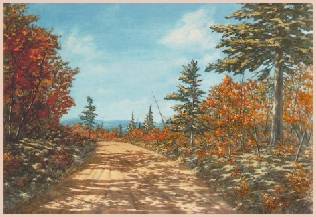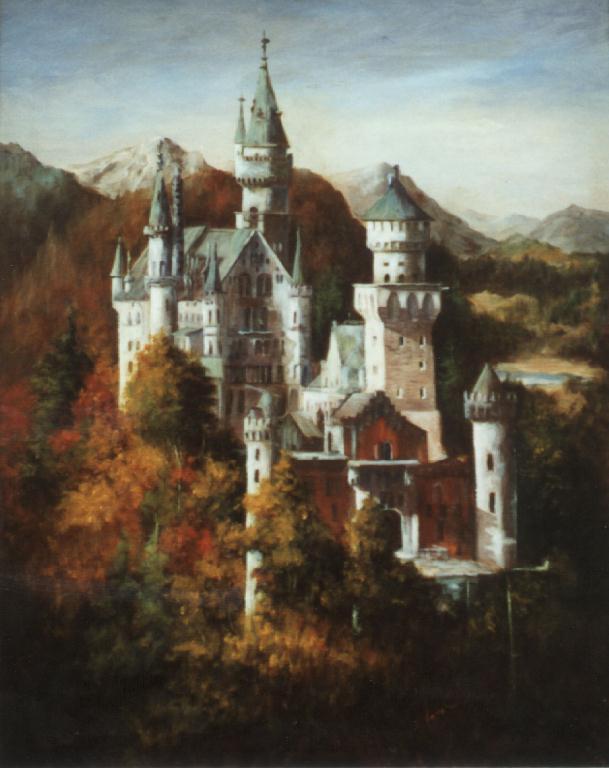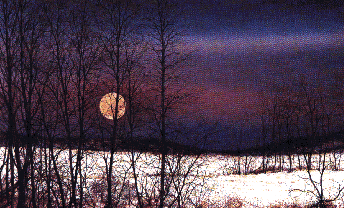

Robert Lee Frost, b. San Francisco, Mar. 26, 1874, d. Boston, Jan. 29, 1963, was one of America's leading 20th-century poets and a four-time winner of the Pulitzer Prize. An essentially pastoral poet often associated with rural New England, Frost wrote poems whose philosophical dimensions transcend any region.
Although his verse forms are traditional--he often said, in a dig at archrival Carl Sandburg, that he would as soon play tennis without a net as write free verse--he was a pioneer in the interplay of rhythm and meter and in the poetic use of the vocabulary and inflections of everyday speech. His poetry is thus both traditional and experimental, regional and universal.
Frost's importance as a poet derives from the power and memorability of particular poems. "The Death of the Hired Man" (from North of Boston) combines lyric and dramatic poetry in blank verse. "After Apple-Picking" (from the same volume) is a free-verse dream poem with philosophical undertones. "Mending Wall" (also published in North of Boston) demonstrates Frost's simultaneous command of lyrical verse, dramatic conversation, and ironic commentary. "The Road Not Taken" and "Birches" (from Mountain Interval) and the oft-studied "Stopping by Woods on a Snowy Evening" (from New Hampshire) exemplify Frost's ability to join the pastoral and philosophical modes in lyrics of unforgettable beauty.
Frost's poetic and political conservatism caused him to lose favor with some literary critics, but his reputation as a major poet is secure. He unquestionably succeeded in realizing his life's ambition: to write "a few poems it will be hard to get rid of."
TWO roads diverged in a yellow wood,
And sorry I could not travel both
And be one traveler, long I stood
And looked down one as far as I could
To where it bent in the undergrowth;
 Then took the other, as just as fair,
And having perhaps the better claim,
Because it was grassy and wanted wear;
Though as for that the passing there
Had worn them really about the same,
And both that morning equally lay
In leaves no step had trodden black.
Oh, I kept the first for another day!
Yet knowing how way leads on to way,
I doubted if I should ever come back.
I shall be telling this with a sigh
Somewhere ages and ages hence:
Two roads diverged in a wood, and I--
I took the one less traveled by,
And that has made all the difference.
Then took the other, as just as fair,
And having perhaps the better claim,
Because it was grassy and wanted wear;
Though as for that the passing there
Had worn them really about the same,
And both that morning equally lay
In leaves no step had trodden black.
Oh, I kept the first for another day!
Yet knowing how way leads on to way,
I doubted if I should ever come back.
I shall be telling this with a sigh
Somewhere ages and ages hence:
Two roads diverged in a wood, and I--
I took the one less traveled by,
And that has made all the difference.
WHEN I go up through the mowing field, The headless aftermath, Smooth-laid like thatch with the heavy dew, Half closes the garden path. And when I come to the garden ground, The whir of sober birds Up from the tangle of withered weeds Is sadder than any words. A tree beside the wall stands bare, But a leaf that lingered brown, Disturbed, I doubt not, by my thought, Comes softly rattling down. I end not far from my going forth By picking the faded blue Of the last remaining aster flower To carry again to you.

O HUSHED October morning mild,
Thy leaves have ripened to the fall;
To-morrow's wind, if it be wild,
Should waste them all.
The crows above the forest call;
To-morrow they may form and go.
O hushed October morning mild,
Begin the hours of this day slow,
Make the day seem to us less brief.
Hearts not averse to being beguiled,
Beguile us in the way you know;
Release one leaf at break of day;
At noon release another leaf;
One from our trees, one far away;
Retard the sun with gentle mist;
Enchant the land with amethyst.
Slow, slow!
For the grapes' sake, if they were all,
Whose leaves already are burnt with frost,
Whose clustered fruit must else be lost--
For the grapes' sake along the wall.
WHEN a friend calls to me from the road
And slows his horse to a meaning walk,
I don't stand still and look around
On all the hills I haven't hoed,
And shout from where I am, What is it?
No, not as there is a time to talk.
I thrust my hoe in the mellow ground,
Blade-end up and five feet tall,
And plod: I go up to the stone wall
For a friendly visit.

SOME say the world will end in fire,
Some say in ice.
From what I've tasted of desire
I hold with those who favor fire.
But if it had to perish twice,
I think I know enough of hate
To know that for destruction ice
Is also great
And would suffice.
IT went many years,
But at last came a knock,
And I thought of the door
With no lock to lock.
I blew out the light,
I tip-toed the floor,
And raised both hands
In prayer to the door.
But the knock came again
My window was wide;
I climbed on the sill
And descended outside.
Back over the sill
I bade a "Come in"
To whoever the knock
At the door may have been.
So at a knock
I emptied my cage
To hide in the world
And alter with age.